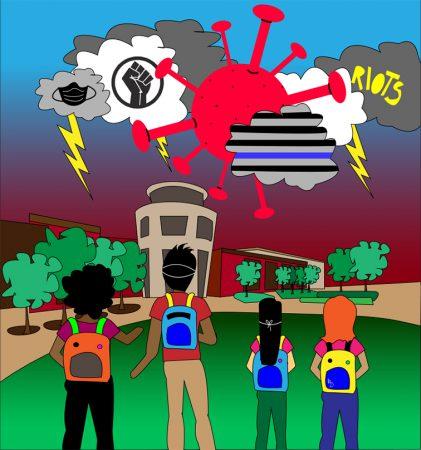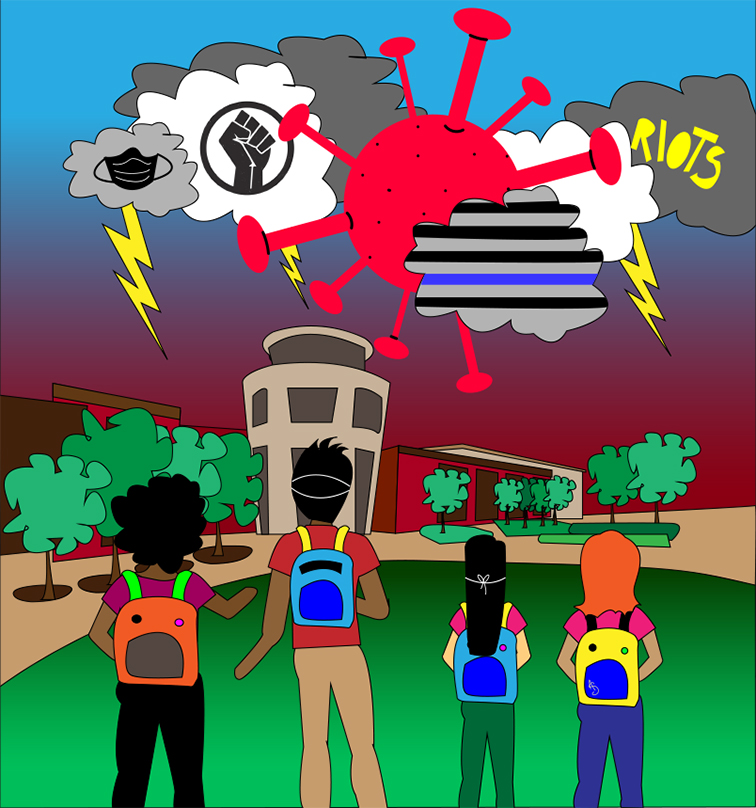
The year of 2020 will forever be titled “What else can happen?” By February, the mood in The Collegian newsroom shifted. Rumblings of COVID-19 cases from the media increased in frequency through alerts on our smart devices, and infections started to spread closer to the Dallas/Fort Worth area.
NW student Juan Ibarra, the multimedia editor at the time, started to exercise more precautions with his interactions with the team, warning us like an elderly man in a 1980s slasher horror movie that viral danger is coming. We didn’t take the time to assess the situation or take it seriously after seeing the media sensationalizing these things in the
past.
Oh boy, we were in for a rude awakening not taking heed of the warning that was given.
By spring break, the lives of many TCC students and employees changed permanently. We received the news that the campuses across the district would be closed indefinitely in line with colleges across the country
in an attempt to combat the spread of the virus. The TCC community had to shift to an online-only environment many were not prepared to deal with — some were unable to
adapt and stepped away from education. the ugly side of humanity revealed itself with people hoarding necessities such as toilet paper and Lysol, with scalpers extortin customers with a 400% increase for the cost of these items. Grocery stores closed early due to a lack of food. Whispers of a food shortage prompted people to buy up food to decrease the amount of interaction with people by staying at home.
Staying in the house brought cabin fever to the masses since many people had no choice but to deal with their home situation and themselves. Some college students endured depression from not being able to work on their hands-on degrees that they were in
school for. In some homes, domestic violence flared up, and child abuse took hold when some adults could not interact with their children or partners without breaks or space.
Just as we were adjusting to life with COVID-19, an onlooker caught one of the most tragic events in American history on video with her cellphone. Eight minutes and 46 seconds of video showed the torture of a black man named George Floyd, apprehended for allegedly passing counterfeit bills, with a knee to his neck, pleading with the officers that he couldn’t breathe. Watching someone call out for his mother as he’s dying does something to you on a personal level if you’re truly humane.
Floyd’s death was the last straw, sparking civil unrest in many urban areas in America,
including Dallas and Fort Worth, reigniting that Black Lives Matter to those detractors that counter with All Lives Matter when trying to shed light on issues the black community goes through.
Black Lives Matter is not a hate group, nor does it imply black superiority over any other race. If you still believe that, after BLM supporters of all races repeatedly explain this to you, it’s time to look in the mirror. As students return to campuses, they’re entering a whole new world that’s more isolated and less welcoming than ever before.
One of the most critical presidential elections looms in the near future that’s going to shape the landscape even further after all the smoke clears.

